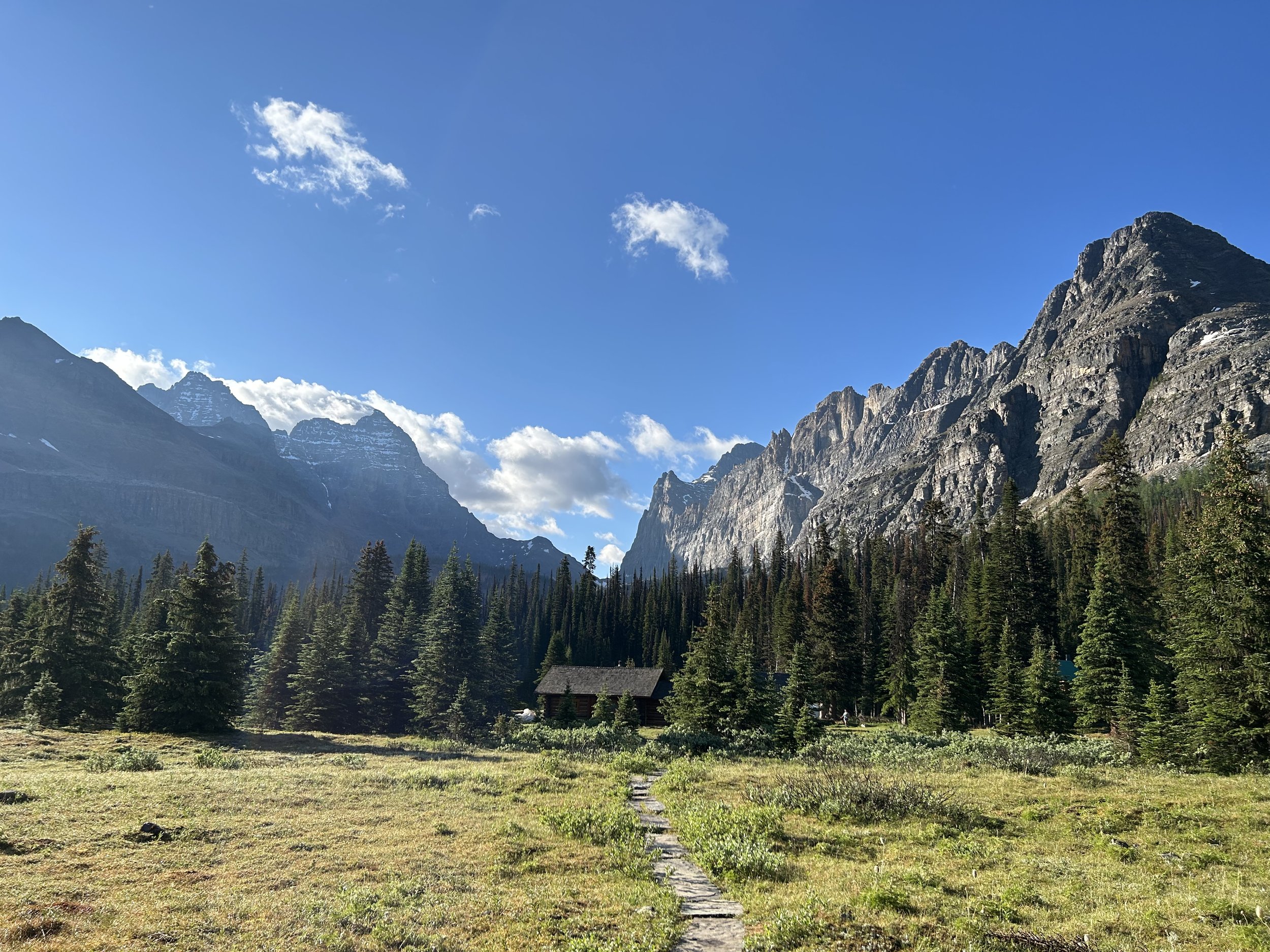Stepping into Vulnerability
There’s a degree of uncertainty when you head into the backcountry with new friends, as I did last month. We didn’t know each other. We didn’t know what to expect from each other. We didn’t know if we could rely on each other if we got into a challenging situation. We didn’t know how each of us would even define a challenging situation, let alone how we’d each handle a challenging situation.
It was a risk to venture out with three new friends. As with most risky situations, I felt scared and excited at the same time. What if we are awful companions and the trip is miserable? What if we are compatible—or more than compatible? After a moment to think about it, I said YES, trusting the hiking companion curation of the one person, a relatively new acquaintance, who pulled us together.
Our first steps into the forest as new friends involved vulnerability as one of our party spoke these words—What you need to know about me is… She proceeded to reveal something deeply personal about herself, and following her lead, we each took a turn as we made the gentle climb, carefully stepping on and around roots and rocks:
When I’m on a ledge and feel exposed, I get very anxious. I might panic.
A kilometre into a hike, I always have to slip into the bushes for a pit stop.
My face turns tomato red with physical exertion. You’re going to wonder if I will die on you.
I have gastrointestinal trouble. I’m going to have to run away unexpectedly from time to time.
The Huber Leges on the Alpine Circuit route above Lake O’Hara. In the distance, Lake Oesa.
The Alpine Club of Canada hut at Lake O’Hara.
Without being explicit, we checked in with each other as we climbed in a line, one behind the other, revealing information that would help us be good companions for a few days. After this first round of reveal, we tucked most of our belongings away in the hut where we’d spend the night and headed up the mountain.
As we climbed, another layer of vulnerability unfolded like the beautiful alpine flowers all around us, precious and delicate. We didn’t touch the delicate stories; we witnessed them with care. Wine drinking that got out of control during the pandemic. The deep wounds of a tough relationship when life was already tough. A big decision about whether to move. The heartbreak of having an adult child with a challenging health condition.
“This ‘fill-in-the-blank sentence’ form of check-in allowed us to drop and relax into a space of honesty.”
Those words at the outset of our trip—what you need to know about me is…—invited us to establish the quality of our social habitat with each other in two important ways. First, we learned practical information about what to expect from each other. We didn’t have to worry, for example, when one of us looked panicky because we knew what was happening. Second, these reveals helped form a container within which we could bravely display other parts of our inner worlds. While we could have exchanged names and engaged in idle chit-chat, this “fill-in-the-blank sentence” form of check-in allowed us to drop and relax into a space of honesty.
In the spring of 2022, as I was on my emotional knees after an agonizing dating experience, I realized that I wanted more of what I call upper mountain relationships in my life. I was skiing in the mountains with a good friend, my mood alternating between an intense dating hurt and glee that my “bad” knee was very, very good. As my friend and I talked and talked about the challenging emotional circumstances in our lives, the mountain delivered my former dating partner to the ski hill, informing me about the truth of their skill: stuck at the bottom of the mountain because they did not have the skills they professed to have. My friend and I laughed because the truth was out: I was having a ball skiing expert terrain at the top of the mountain. When invited to the bottom of the mountain for drinks, I responded, “Look up, look waaaaayyy up, that’s where you’ll find me (in the awesome snow).”
The skiing terrain mirrored the skiing and relationship skills I was looking for in relationships with people close to me. At the top of the mountain: being honest about skills, exploring new terrain, and pushing our limits to improve our skills. At the bottom: avoiding the truth about skills, sticking to comfortable terrain to avoid circumstances that would invoke the needed effort to improve. I realized that I long for more relationships where I am expected to explore my experiences and express my feelings. My lower mountain dating partner’s relationship strategy was emotional distance. Talking about anything openly invites emotional connection and social proximity—a quality of relationship that energizes me.
Above Lake O’Hara, with a new group of friends, there was an unspoken agreement in the invitation to tell others what they need to know about each of us: be honest with yourself and others about what you are experiencing (or are likely to experience). As we spent more time together, we took it a bit further and were honest about how we felt about our experiences, too. As we came off the mountain, I realized that more upper mountain people had arrived in my life.
The delightful mountains have delivered again—friends willing to climb and stand at the edge.
Our companion curator, in her happy place.
Reflection
Where do you have a sense of “edge” in your life?
How do you describe your relationship to this edge?
What are the qualities of relationships in your life that you have—or would like to have—as you explore edges?





